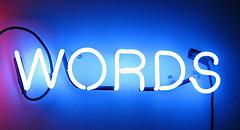
Image by Feuillu via Flickr
Plagiarism:
Workplace Whistle blowing
None of us want to believe that one of our co-workers is
a thief or lazy; but, the fact of the matter is, there is a lot of unethical
behavior in the workplace. Plagiarism is; “ submitting someone
else’s written work as your own, copying information verbatim from the
Internet, using incorrect paraphrasing, not documenting references, and,
copying from yourself” (Girard, J.N, 2004). Yes, even copying from yourself can
be considered plagiarism. Plagiarism has become such a problem; ethical
standards must be put in place for writers. Publishers, Instructors, and Employers
are now putting in plagiarism detection systems so that they can limit the
amount of stealing that is going on due to the Internet (Girard, J. N, 2004).
Technology today makes it verily easy to swipe another’s
ideas, words, and images; copy and paste capabilities make swiping another’s
work verily easy. Recently another student plagiarized my work; the college
sent an e-mail stating that this student found a previous assignment on my blog
turning it in as their own. Needless to say, I was not happy, yet, never found
out what happened to, or who this student was. Stealing is wrong, no matter the
form of property taken. And ethics are ethics, whether, personal or
professional. In addition, many people turn their head in the belief this
is a victimless crime (Girard, J. N, 2004).
No crime is victimless; let us straighten that out first
and foremost. Furthermore, the person that overlooks the ‘victimless crime’
will overlook other crimes; which, says a bundle about their ethics.
Additionally, if this woman worked with anyone who plagiarized, after making
sure the suspicions are true, would whistle blow immediately. The key to this
tattle telling, or any whistle blowing, is to make sure the facts are there;
plagiarism is stealing, and that is a serious charge to accuse someone of.
Making sure that suspicions are true protects your reputation. Additionally, if
accusations are true and you do not tell an authority, when the truth does come
out, and, the management finds that you knew, your reputation will be in
question. And frankly speaking, if the turning of your head is the action taken
against crime, the consequences are your just desert (Girard, J. N, 2004).
Consequences for plagiarism vary from one employer to
another. An employee would most likely be fired, maybe even sued civilly.
However, in the eyes of consumers and investors, a business is responsible for
their employees’ actions. This means that the victim may bring charges against
the company as well as the thieving employee. In addition, the company’s
reputation would be harmed, this may not only make them fire you but sue for
liabilities. There are many reasons why employees plagiarise others’ work;
although, none of them are good ones. Whether meeting deadlines or lack of
ideas, thieves come up with some good excuses for their behavior; some even
think if they buy their work off the internet they can do what they wish with
it, without giving credit. This practice is plagiarism and not acceptable
(Girard, J. N, 2004).
In conclusion, I would tell on a co-worker, or anyone
else that steals another’s work; it is unethical and lazy. Furthermore, anyone
who turns their head to this so-called ‘victimless crime’ has no more morals or
ethics than the thief. Additionally, plagiarism is not a victimless crime and
it needs to be dealt with firmly. Finally, in my opinion, plagiarism should
have stiffer penalties and consequences; this is not a victimless crime,
property is stolen, and someone is violated.
References
Girard, J. N. (2004,
July). Plagiarism: An ethical problem in the writing world. Findarticles.com.
http://findarticles.com/p/articles/mi_mOFSL/is_1_80/ai_n6113175/

